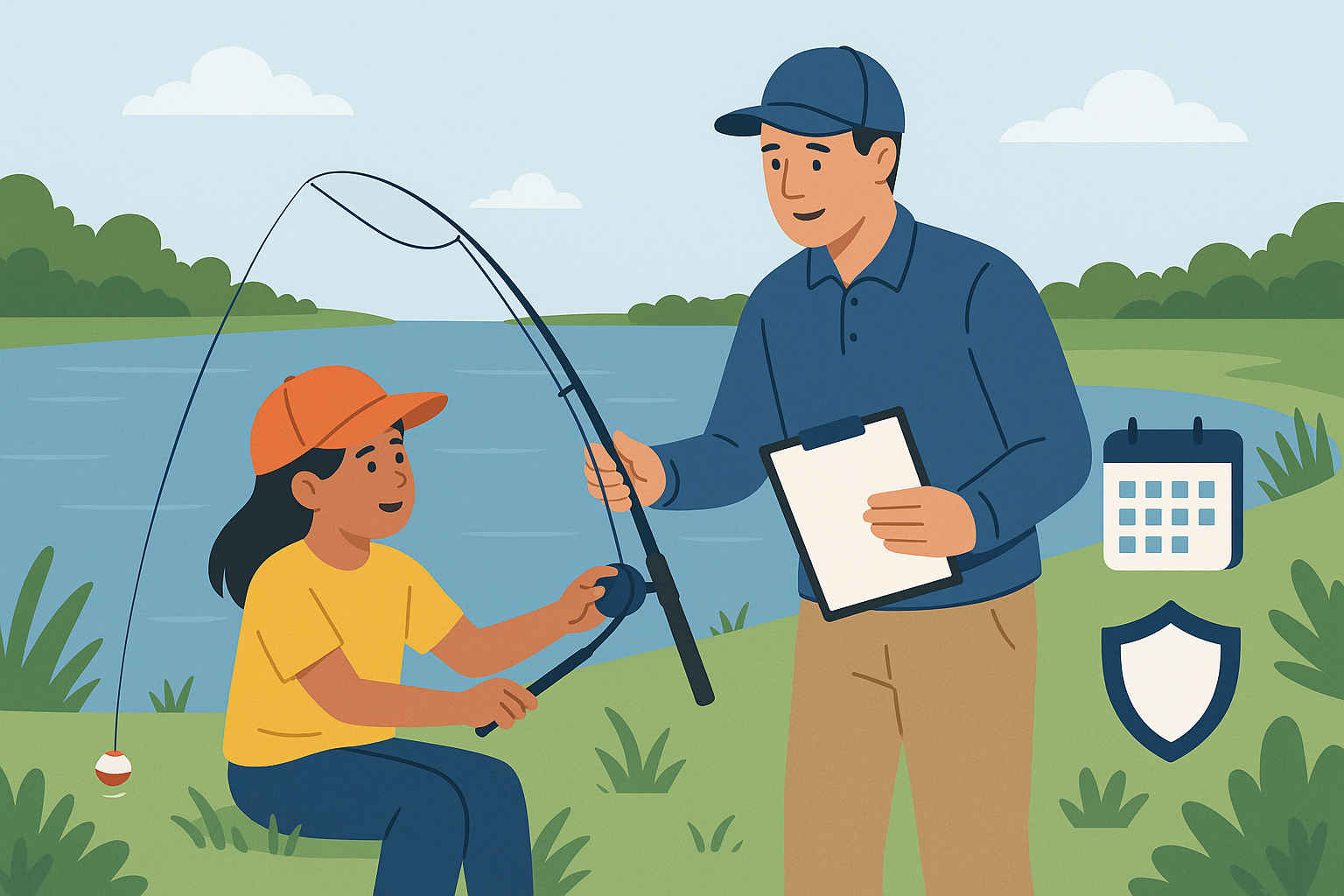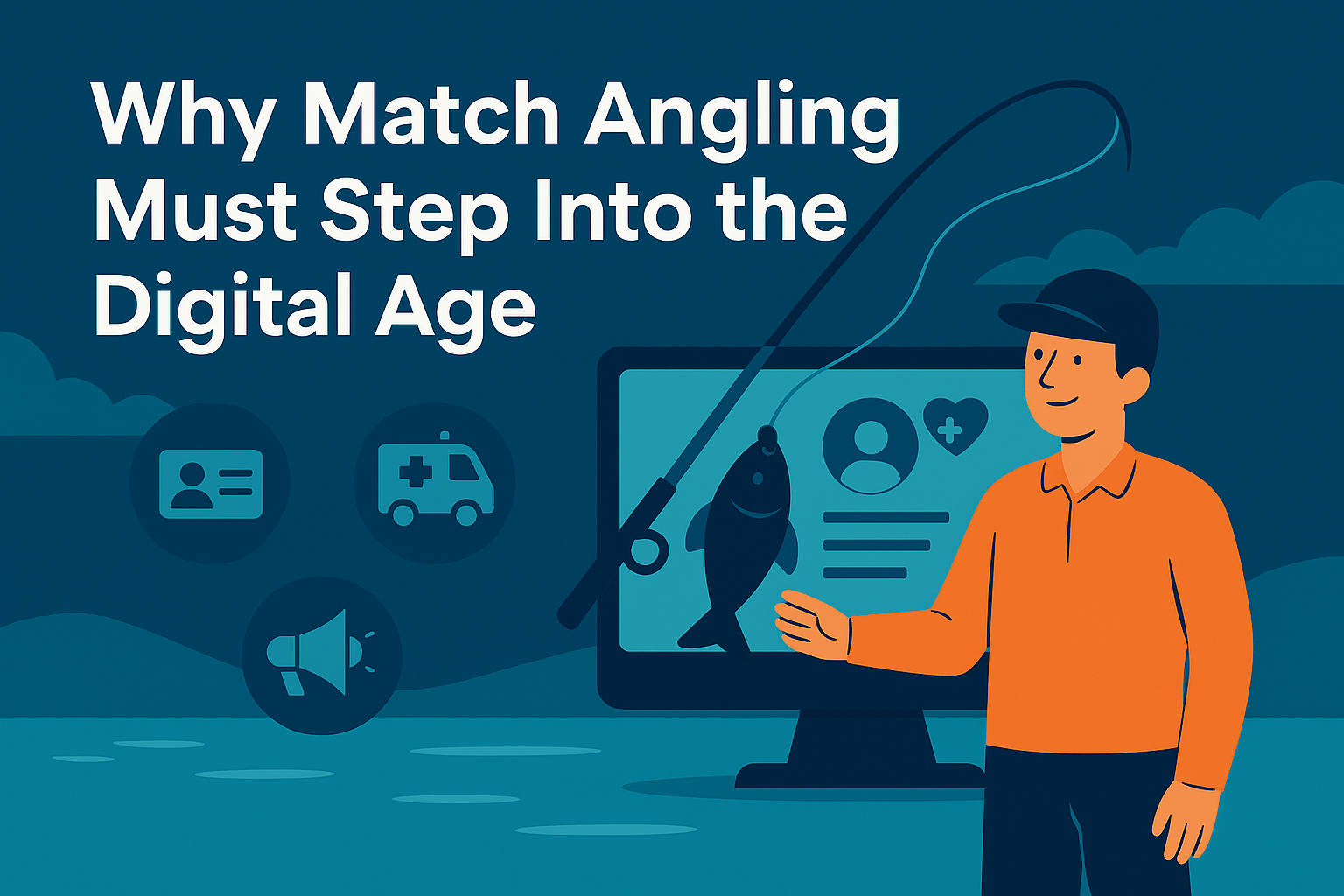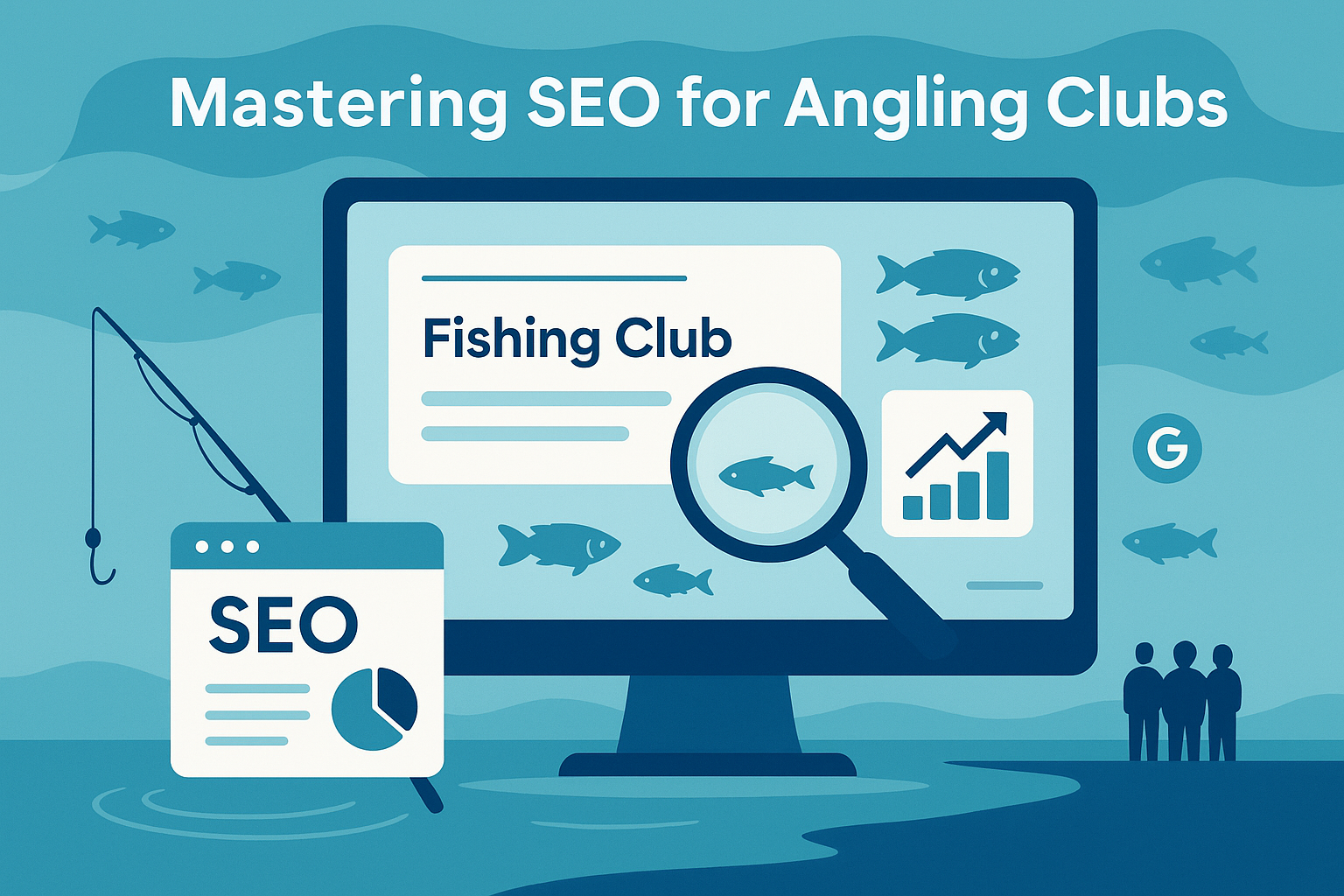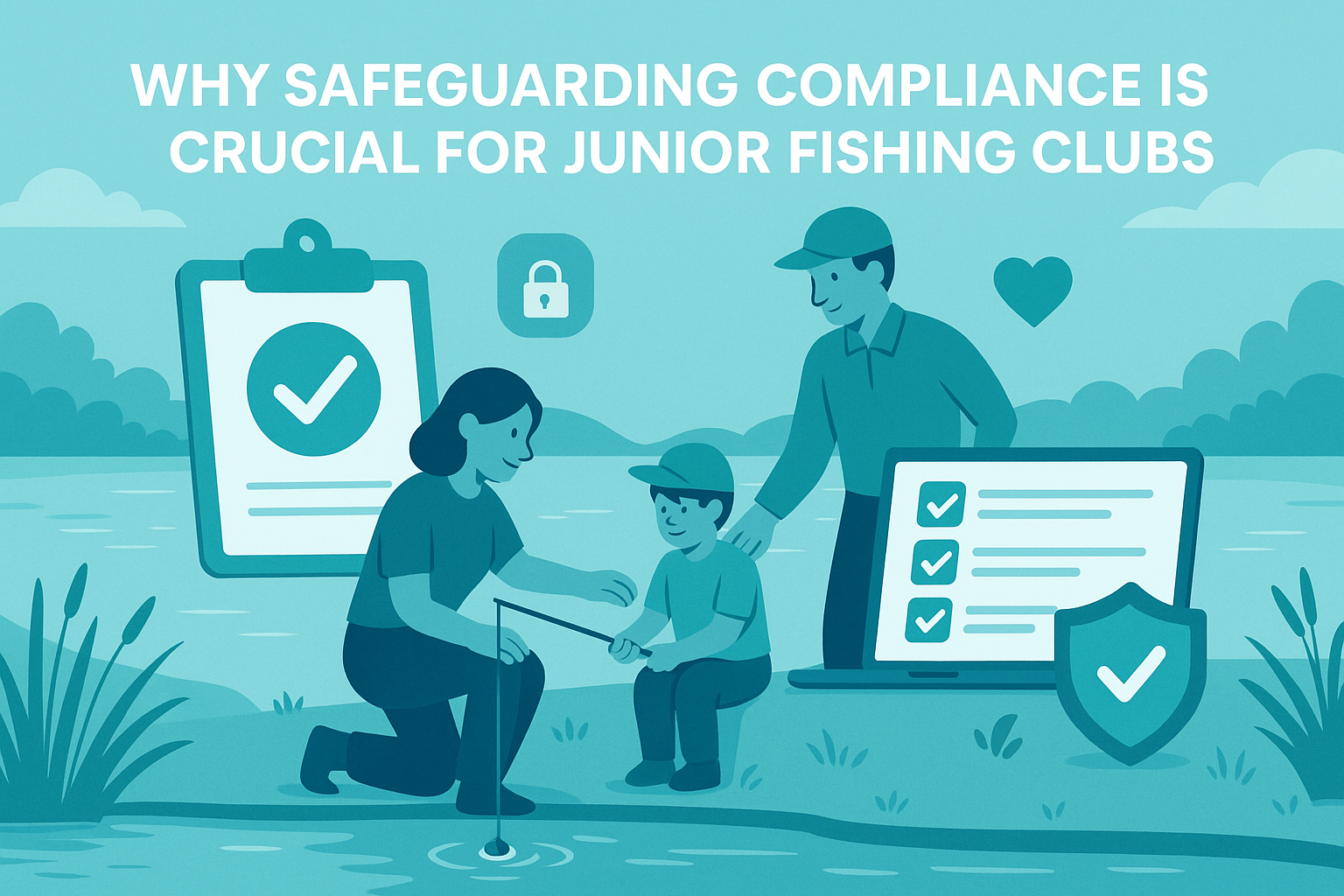Coaching Children in Angling: The Do’s and Don’ts for a Safe, Fun and Structured Experience

Introducing children to the world of fishing is one of the most rewarding experiences a coach or club can offer. It opens the door to lifelong skills, environmental appreciation, and social development. But coaching children—particularly in a structured club environment—requires more than just teaching how to cast a line. It involves safeguarding responsibilities, legal compliance, emotional awareness, and clear communication with parents and guardians.
In this guide, we’ll explore the essential principles of coaching young people in angling, the common pitfalls to avoid, and how Clubnest’s digital platform makes it easier to run a compliant, well-organised junior coaching programme in 2025 and beyond.
Understanding the Responsibility
When coaching children, you are not just teaching fishing skills. You are stepping into a position of trust. This means understanding your duty of care, being aware of safeguarding best practices, and being prepared to adapt your coaching style to suit a range of ages and abilities. Patience and empathy are key. A child may not remember exactly how you taught them to bait a hook, but they will remember how you made them feel.
Children’s experiences in sport are shaped by the environment around them. Creating a positive, safe, and inclusive coaching environment is not only best practice—it’s expected. Clubs that fail to uphold these standards risk losing parental trust, damaging their reputation, and facing serious consequences if safeguarding protocols are breached.
The Importance of Structure and Planning
Unstructured sessions can quickly become chaotic or unsafe. Every session should begin with a clear plan. Coaches should know what skills will be taught, how activities will progress, what equipment is required, and what to do in case of emergency. A structured coaching schedule gives children consistency, builds trust, and allows for measured progress.
This is where Clubnest can offer critical support. The Clubnest platform allows clubs to create detailed coaching timetables, register participants, and track attendance. Sessions can be broken down by age group, ability level, or specific angling technique. Parents can register their children securely online, and coaches can monitor availability, bookings, and session history through one streamlined dashboard.
GDPR and Child Data Compliance
Children’s personal data—including medical information, emergency contacts, and photos—must be handled with the utmost care. The General Data Protection Regulation (GDPR) places strict rules on how this information is stored, accessed, and used.
Clubnest is designed with GDPR compliance at its core. All user data is encrypted and securely stored. Club admins have fine-grained control over who can access sensitive information. Consent forms can be managed digitally, ensuring that photo permissions, medical declarations, and emergency contact details are all current and legally compliant. This means you can focus on delivering great coaching, knowing that your club’s data handling practices are robust and defensible.
Safeguarding and Risk Management
Every junior coaching session should be underpinned by clear safeguarding policies. This includes DBS checks for coaches, reporting structures for incidents or concerns, and agreed behaviour codes for both children and adults.
Clubnest supports clubs with integrated safeguarding tools. DBS verification statuses can be stored and flagged against each coach’s profile. Risk assessments can be created and attached to specific sessions, venues, or activities, ensuring that all participants are accounted for and that safety has been properly considered. This digital record not only promotes best practice but also provides an auditable trail in the event of scrutiny.
Coaches can also log incidents or near misses securely within the platform, helping clubs to monitor trends and make improvements to session safety over time. Whether you’re running a small club or a large county-wide programme, Clubnest gives you the infrastructure to manage safeguarding proactively and professionally.
Creating a Positive Coaching Culture
One of the biggest mistakes in junior coaching is taking a one-size-fits-all approach. Children learn at different rates, and they arrive at sessions with different emotional needs and home experiences. Good coaches focus on inclusion, encouragement, and engagement rather than strict performance goals.
Positive reinforcement, clear boundaries, and mutual respect are the pillars of effective coaching. Avoid negative language, shouting, or comparisons between children. Instead, focus on individual development and team spirit. Celebrate small wins. Make space for questions and curiosity.
Clubnest’s coaching tools allow coaches to leave session notes, track progress, and share updates with parents, helping to create a transparent and collaborative coaching environment. It becomes easier to identify who might need extra support, who’s thriving, and where improvements can be made over time.
Communication with Parents and Guardians
Parental involvement is a crucial part of any junior programme. Parents want to know that their children are safe, learning, and enjoying themselves. They also want clear information about what to bring, where to go, and how to ask questions.
Through Clubnest, clubs can communicate directly with registered parents. Automated email reminders, schedule updates, and emergency alerts can all be sent through the system. Parents can log in to view their child’s upcoming sessions, review any important forms, and get updates on match or coaching availability—all from one easy-to-use platform.
This level of communication reduces admin overhead for coaches and ensures that everyone involved is informed and confident.
The Long-Term Impact
Investing in high-quality coaching for children is not just about fishing. It’s about developing patience, building resilience, and encouraging a lifelong love for the outdoors. Many of today’s junior anglers will become the club members, coaches, and community leaders of tomorrow. The habits and experiences they form now will shape their attitudes toward sport and nature for years to come.
With Clubnest, you’re not just ticking boxes—you’re building a better club from the inside out. By embracing digital tools, you create a safer, smarter, and more inclusive environment for coaching the next generation of anglers.
Final Thoughts
Coaching children in angling is a privilege and a responsibility. It requires planning, awareness, and a commitment to safeguarding. But it doesn’t need to be overwhelming. With the right tools and a supportive digital infrastructure like Clubnest, clubs can offer well-structured, compliant, and enjoyable coaching sessions that leave a lasting impression.
Whether you're a volunteer just starting out or a seasoned coach looking to improve your programme, remember that the best sessions are those where children feel safe, supported, and inspired. And with Clubnest by your side, delivering that standard becomes a whole lot easier.


